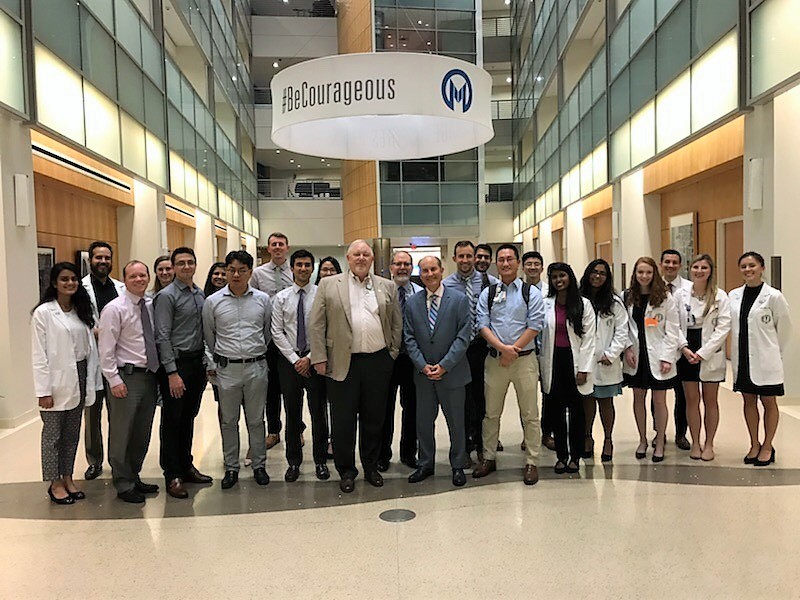In the Mix: Fostering Mentorship Through a Student and Faculty Research Mixer
Athough radiation oncology has become a highly competitive specialty, early exposure remains elusive. With the increasing role of oncology interest groups to positively impact medical student learning about oncology and specialty choice,1 we developed a novel method to introduce students to radiation oncology with pathways for mentorship.
 Partnering with the Moffitt Cancer Center Department of Radiation Oncology, the University of South Florida Radiation Oncology Interest Group (ROIG) organized a wine and cheese research mixer during the first months of the medical school year. Interested medical students would submit their resume in advance and receive access to a project database with physician research interests and ongoing projects.
Partnering with the Moffitt Cancer Center Department of Radiation Oncology, the University of South Florida Radiation Oncology Interest Group (ROIG) organized a wine and cheese research mixer during the first months of the medical school year. Interested medical students would submit their resume in advance and receive access to a project database with physician research interests and ongoing projects.
After welcoming remarks from the department leadership, students would rotate to tables arranged by disease site where they would interact with faculty physicians, physicists, and residents. At the end of each rotation and before moving to the next table, attendees shared contact information to set up a more formal future meeting time. The event concluded with a group photo that was posted on social media to heighten awareness.
Mentorship has been identified by medical students, residents, and faculty as an important component of research productivity in radiation oncology..2,3 Previously established undergraduate medical education mentorship programs in radiation oncology were also shown to strongly affect medical student career choice, as a majority of participants pursued radiation oncology as a specialty.2 Similarly, in residency, the Radiation Oncology Academic Development and Mentorship Assessment Project (ROADMAP) study identified that mentorship positively influences the academic productivity and career direction of residents.4
Along with increased exposure to radiation oncology, this event was also able to foster important research and career mentorships that have resulted in presentations at national/international meetings and peer-reviewed manuscripts. Early opportunities like this could boost the visibility of radiation oncology as a career choice to first- and second-year medical students.
References
- Sherwood M, Rioux D, Knight R, et al. Increasing undergraduate exposure to oncology: the role of oncology interest groups. J Cancer Educ. 2019.
- Boyd GH, Rand AE, DeNunzio NJ, Agarwal A, Hirsch AE. The Radiation Oncology Mentorship Initiative: analysis of a formal mentoring initiative for medical students interested in radiation oncology. J Cancer Educ. 2019.
- Hirsch AE, Agarwal A, Rand AE, et al. Medical student mentorship in radiation oncology at a single academic institution: a 10-year analysis. Pract Radiat Oncol. 2015;5(3):e163-168.
- Holliday EB, Jagsi R, Thomas CR, Jr., Wilson LD, Fuller CD. Standing on the shoulders of giants: results from the Radiation Oncology Academic Development and Mentorship Assessment Project (ROADMAP). Int J Radiat Oncol Biol Phys. 2014;88(1):18-24.
Citation
Song EY, Hoffe SE, Johnstone P, Harrison L. In the Mix: Fostering Mentorship Through a Student and Faculty Research Mixer. Appl Radiat Oncol. 2020;(1):8.
April 4, 2020